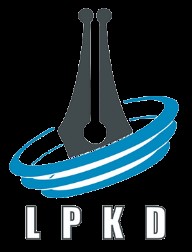PENGARUH MODEL QUANTUM TEACHING TERHADAP HASIL BELAJAR IPS SISWA SDN 050756 ALUR DUA
DOI:
https://doi.org/10.61722/jmia.v1i5.2558Keywords:
Learning Outcomes, Social Studies, and Quantum Teaching ModelAbstract
This study is motivated by the lack of student learning outcomes on the results of preliminary observations, it seems that the learning process in class IV SDN 050756 Alur Dua on Jalan Besitang Alur Dua Pasar, Alur Dua Village, Sei Lepan District, Langkat Regency on social studies learning has not been maximally implemented in learning through conventional learning models. Students lack motivation to learn as they should, therefore the learning process in the classroom is less than ideal so that it affects the learning outcomes of students. This research approach used by researchers is a quantitative approach and the type of research using quasi experiment (Pseudo Experiment). This data collection method uses, tests and documentation. The purpose of the study was to determine the results of whether there are differences in students who get the quantum teaching model and who do not get treatment. The results showed that there was a significant effect of using the Quantum Teaching model, this can be seen from the average value of the post test of each class. The social studies learning outcomes in the experimental class at the beginning of giving the pretest only get an average of 35.02 and the control class gets an average of 42.76. However, after getting treatment and being given a posttest the experimental class got an average result of 71.67 and the control class 58.19. From the research conducted, it was found that there was a significant influence on the social studies learning outcomes of fourth grade students of SDN 050756 Alur Dua. This can be seen based on the t test. The t test obtained t count t table is 2.801 2.048 then, Ho is rejected and Ha is accepted. Researchers who want to research with similar cases in the future, researchers recommend using subjects and others so that they can be used as comparative studies in improving the quality and quality of education.
References
Aeni, Y., Ibrahim, D. S. M., Hamdi, Z., & Husni, M. (2021). Pengaruh Model Tandur Terhadap Keterampilan Menulis Narasi Siswa Kelas V SDN 1 Suralaga Tahun Pelajaran 2021/2022. Jurnal Pendidikan Tambusai, 5. https://doi.org/https://doi.org/10.31004/jptam.v5i2.1746
Afandi, M., Evi Chamalah, & Oktarina Puspita Wardani. (2013). Model Dan Metode Pembelajaran Di Sekolah. Semarang: Sultan Agung Press.
Ananda, R., & Fadhli, M. (2018). Statistik Pendidikan Teori dan Praktik (S. Saleh, Ed.). Medan: Widya Puspita.
Anas, N., & Rambe, R. N. (2019). Model of Knowledge for Students Prospective. EAI.
Aulia, R., & Wandini, R. R. (n.d.). Karakteristik Mata Pelajaran IPS (Vol. 5).
Danaryati, A., & Sari, D. P. (2014). Pengaruh Model Pembelajaran Quantum Teaching Terhadap Kemampuan Komunikasi Matematis Dan Hasil Belajar Siswa Kelas XI SMA. ResearchGate, 2. https://doi.org/10.20527/edumat.v2i1.589
DePorter, B., Reardon, M., & Sarah. (2007). Quantum Teaching : Orchestrating Student Success Bandung: Kaifa.
Dora, N., & Ebdayani Henni. (n.d.). Pengantar Ilmu Sosial (E. Susanti, Ed.; 1st ed.). Medan: Widya Puspita.
Hartono. (2012). PAIKEM Pembelajaran Aktif Inovatif Kreatif Efektif dan Menyenangkan (4th ed.).Pekanbaru: Zanafa Publishing.
Hasbi, S. (2022). METODE PENELITIAN PENDIDIKAN (1st ed.). Medan: Cv Manhaji.
Helmiati. (2012). MODEL PEMBELAJARAN. Sleman: Aswaja Pressindo.
Jaya, I. (2010). Panduan Terampil Mengoperasikan SPSS.
Jumrah, A. M. (2020). Penerapan Model Pembelajaran Tandur dalam Meningkatkan Hasil Belajar IPS pada Siswa Kelas V SD Inpress Bontoloe Kecamatan Kabupaten Gowa. Semanticscholar, 4. https://doi.org/10.33487/EDUMASPUL.V4I1.2120
Kusumastuti, A. (2020). Metode Penelitian Kuantitatif.Sleman: Deepublish.
Muthamainnah, Tamsik Udin, Monika Krolina Sianturi, Agus Purnomo, Anwar Rifai, Syamsiara Nur, A.Octamaya Tenri Awaru, & Naidin Syamsuddin. (2021). Sistem Model Dan Desain Pembelajaran (M. Guntur, Amaliah Nina Wahyuni, & Humairo Mashnaul. Aceh: Yayasan Penerbit Muhammad Zaini.
Nasution, A. G. J. (2020). Metodologi Penelitian: Kuantitatif dan Kualitatif.
Nasution, T., & Lubis, M. A. (2018). Konsep Dasar IPS. Yogyakarta: Penerbit Samudra Biru.
Neliwati. (2018). Metodologi Penelitian Kuantitatif (Kajian Teori dan Praktik). Medan: CV.Widya Puspita.
Parsa, I. M. (2017). Evaluasi Proses dan Hasil Belajar. Kupang: CV.Rasi Terbit.
Rahim, A., Masni, H., Arfila, D., Hutabarat, Z. S., Yamani, A., Pamungkas, S., & Syaputra, D. (2023). Motivasi Belajar dan Hasil belajar melalui model pembelajaran kooperatif (1st ed.). Purbalingga: Eureka Media Aksara, Juni 2023 Anggota Ikapi Jawa Tengah No. 225/JTE/2021.
Sugiyono. (2019). Metode Penelitian Kuantitatif Kualitatif dan R&D (Sutopo, Ed.; 2nd ed., Vol. 1). Bandung: Alfabeta.
Susanti, E., & Endayani, H. (2018). Konsep Dasar IPS (N. Dora, Ed.; 1st ed.). Medan : Widya Puspita.
Tabah, S., & Si, H. M. (2018). Hubungan Antara Ilmu-Ilmu Sosial Dan Ips (Sumber Dan Materi Ips) (Vol. 2, Issue 1). Januari-Juni.
Tim Pusdiklat Pegawai. (2016). Penilaian Hasil Belajar (1st ed.). Jakarta : Pusdiklat Pegawai Kemendikbud.
Wote, A. Y. V., Sasingan, M., & Kitong, O. E. (2020). Efektivitas Penggunaan Model Quantum Teaching dalam Meningkatkan Hasil Belajar IPA. ..Journal of Education Technology, 4(2). https://scholar.googleusercontent.com/scholar?q=cache:7CstWhgodJ0J:scholar.google.com/++Efektivitas+Penggunaan+Model+Quantum+Teaching+dalam+Meningkatkan+Hasil+Belajar+IPA&hl=id&as_sdt=0,5
Yusnaldi, E. (2019). Potret Baru Pembelajaran IPS. Medan: Perdana Publishing.
Zunidar. (2020). Strategi Pembelajaran (1st ed.). Medan: Perdana Publishing.
Downloads
Published
Issue
Section
License
Copyright (c) 2024 JURNAL MULTIDISIPLIN ILMU AKADEMIK

This work is licensed under a Creative Commons Attribution-ShareAlike 4.0 International License.












